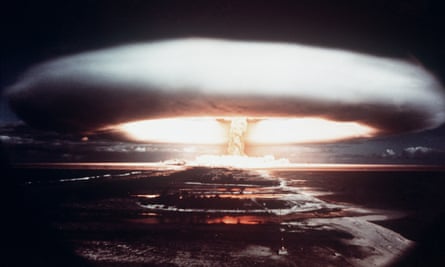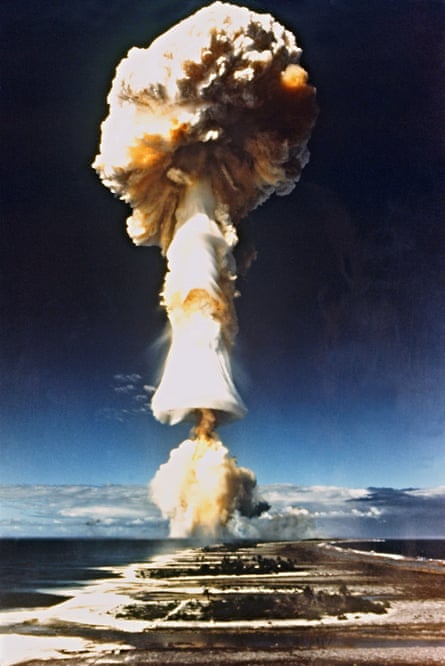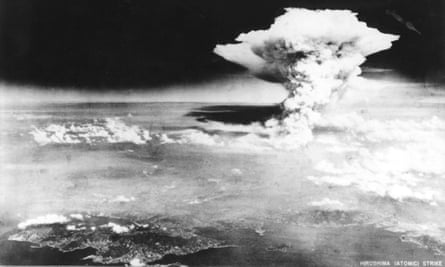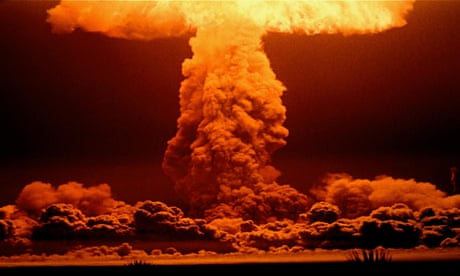Campaigners hail ‘historic milestone’ as treaty banning nuclear weapons reaches the 50 ratifications needed to take effect.
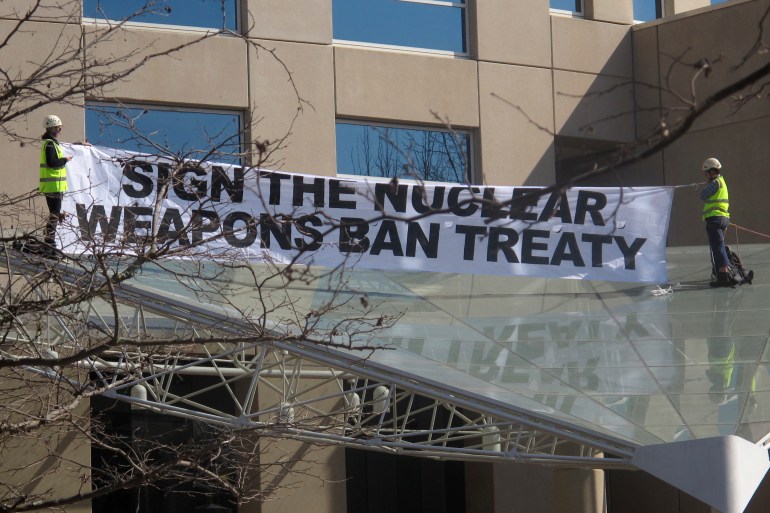
25 Oct 2020
Fifty countries have ratified an international treaty to ban nuclear weapons, the United Nations has announced, allowing the “historic” text to enter into force in 90 days.
Honduras became the 50th country to ratify the landmark Treaty on the Prohibition of Nuclear Weapons (TPNW), the UN said on Saturday, in a move hailed by anti-nuclear activists but strongly opposed by the United States and the other major nuclear powers.
UN Secretary-General Antonio Guterres commended the 50 states and saluted “the instrumental work” of civil society in facilitating negotiations and pushing for ratification, his spokesman Stephane Dujarric said on Saturday.
The UN chief said the treaty’s entry into force on January 22, 2021, crowns a worldwide movement “to draw attention to the catastrophic humanitarian consequences of any use of nuclear weapons” and “is a tribute to the survivors of nuclear explosions and tests, many of whom advocated for this treaty”.
According to Dujarric, Guterres also said the treaty “represents a meaningful commitment towards the total elimination of nuclear weapons, which remains the highest disarmament priority of the United Nations”.
‘UN at its best’
The International Campaign to Abolish Nuclear Weapons (ICAN), the 2017 Nobel Peace Prize-winning coalition whose work helped spearhead the nuclear ban treaty, called the development a “historic milestone”.
“This moment has been 75 years coming since the horrific attacks on Hiroshima and Nagasaki, and the founding of the UN which made nuclear disarmament a cornerstone,” said Beatrice Fihn, executive director of ICAN.
“The 50 countries that ratify this Treaty are showing true leadership in setting a new international norm that nuclear weapons are not just immoral but illegal,” she said.
The 50th ratification came on the 75th anniversary of UN Day, commemorating the ratification of the Charter of the United Nations, which officially established the UN.
“The United Nations was formed to promote peace with a goal of the abolition of nuclear weapons,” Fihn said. “This treaty is the UN at its best – working closely with civil society to bring democracy to disarmament.”
The treaty requires that all ratifying countries “never under any circumstances … develop, test, produce, manufacture, otherwise acquire, possess or stockpile nuclear weapons or other nuclear explosive devices.” It also bans any transfer or use of nuclear weapons or nuclear explosive devices – as well as threatening to use such weapons – and requires parties to promote the treaty to other countries.
Once it enters into force, all countries that have ratified it will be bound by those requirements.
The group of nuclear-armed states, including Britain, China, France, Russia and the US, have not signed the treaty.
However, campaigners hope that it coming into force will have the same impact as previous international treaties on landmines and cluster munitions, bringing a stigma to their stockpiling and use, and thereby a change in behaviour even in countries that did not sign up.
‘Strategic error’
The US had written to treaty signatories saying the administration of US President Donald Trump believes they made “a strategic error” and urging them to rescind their ratification.
The letter, obtained by The Associated Press news agency, claimed the new treaty was “dangerous” to the half-century-old Nuclear Nonproliferation Treaty, which sought to prevent the spread of nuclear arms beyond the five original weapons powers.
Fihn dismissed the claim, saying: “There’s no way you can undermine the Nonproliferation Treaty by banning nuclear weapons. It’s the end goal of the Nonproliferation Treaty.”
Francesco Rocca, president of the International Federation of Red Cross and Red Crescent Societies, said: “The simple reality is that the international community could never hope to deal with the consequences of a nuclear confrontation. No nation is prepared to deal with a nuclear confrontation. What we cannot prepare for, we must prevent.”
There are more than 14,000 nuclear bombs in the world, thousands of which are ready to be launched in an instant, Rocca said. The power of many of those warheads is tens of times greater than the weapons dropped on Nagasaki and Hiroshima.
Setsuko Thurlow, a survivor of the 1945 bombing of Hiroshima, who has been an ardent campaigner for the treaty, said: “When I learned that we reached our 50th ratification, I was not able to stand.”
“I remained in my chair and put my head in my hands and I cried tears of joy,” she said in a statement. “I have committed my life to the abolition of nuclear weapons. I have nothing but gratitude for all who have worked for the success of our treaty.”
SOURCE : AL JAZEERA AND NEWS AGENCIES
